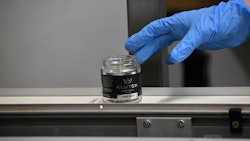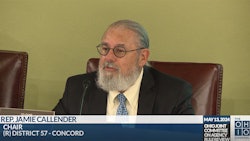
A bipartisan pair of Pennsylvania lawmakers are already pointing next door to Ohio in their push to legalize adult-use cannabis in the commonwealth.
State Reps. Aaron Kaufer, R-Luzerne, and Emily Kinkead, D-Allegheny, circulated a memorandum June 17 to their colleagues in the 203-member House, urging them to cosponsor a 220-page bill to reform Pennsylvania’s cannabis laws.
The legislation would establish a taxed and regulated adult-use cannabis program under the state’s Department of Agriculture and allow adults 21 years and older to purchase and consume cannabis from licensed retailers and possess up to 30 grams of cannabis flower, 1,000 milligrams of THC or 5 grams of cannabis concentrate.
This legislation comes as 24 states have legalized adult-use cannabis and as Ohio gears up to launch adult-use sales following 57.2% voter approval of a legalization measure in the November 2023 election. Unlike Ohio, Pennsylvania does not provide for citizen-initiated ballot measures, so adult-use legalization must be done legislatively.
Kaufer and Kinkead’s bill also comes as Pennsylvania’s medical cannabis program has recorded $6 billion in dispensary sales since the program launched in February 2018, including more than $1.5 billion in sales last year, according to the state’s Department of Health. This rivals Florida as the most robust medical market in the nation.
“While that program has remained robust, many of our neighboring states have legalized the recreational use of marijuana,” Kaufer and Kinkead wrote in the memo. “One of the most recent, Ohio, is primed to open their market with the lion’s share of their licenses perched on the border of Pennsylvania as they seek to take capture Pennsylvania dollars into their market. Accordingly, we believe that now is the time for Pennsylvania to move in a similar direction, and our bill establishes strong tenets for an adult-use market.”
Pennsylvania is one of four states bordering Ohio that has not legalized adult-use cannabis—Indiana, Kentucky and West Virginia are included in that quartet. Should these states follow in Ohio’s footsteps, it would resemble a similar domino effect that played out among Massachusetts’ neighbors not long ago.
The first state east of the Mississippi River to legalize adult-use cannabis, Massachusetts launched adult-use sales in November 2018. Border states Vermont, New York, Connecticut and Rhode Island followed suit in the years since—as did Maine, New Jersey, Delaware and Maryland.
Should Ohio’s green wave become contagious among its neighbors, Pennsylvania will most likely be the first to follow, given the age of its medical program. In addition, Democratic Gov. Josh Shapiro, who assumed office in 2023, has publicly supported adult-use legalization since 2019.
Specifically, Kaufer and Kinkead’s bill intends to:
- Establish parameters for an adult-use program under the Department of Agriculture;
- Create guardrails around the licensed sale and legal use of cannabis that will help eradicate the unregulated market;
- Provide support for small businesses to participate in the market, prioritizing rural, minority, female and veteran-owned businesses in particular;
- Establish robust guidelines for the labeling, packaging and advertising of products to ensure that products are not marketed to children and adolescents;
- Implement a “clean slate” policy and criminal justice reforms for residents with cannabis-related convictions;
- Provide funding and support for law enforcement to enforce cannabis regulations;
- Provide funding for local municipalities with cannabis businesses;
- Leverage Pennsylvania’s agricultural infrastructure and support local farmers; and
- Generate new revenue for the state and create jobs.
“This bill underscores our commitment to responsible regulation of the cannabis industry while addressing the diverse needs of Pennsylvania’s communities,” Kaufer said in a press release that coincided with the memo. “By prioritizing public safety and consumer protection, this legislation will build on the successful regulatory structure of the state’s medical cannabis program, continuing stringent standards for product quality, packaging and labeling to ensure the well-being of all consumers.”
The legislation also intends to develop and implement a comprehensive social equity and economic development program in partnership with the Commonwealth Financing Authority, which would have the duty to conduct oversight of grants and loans, according to the bill.
Furthermore, the legislation includes criminal justice provisions, such as expungements for nonviolent cannabis offenses, and seeks to create opportunities for those disproportionately impacted by cannabis prohibition by prioritizing fairness and inclusivity within a licensed industry.
“It is well past time for the commonwealth to legalize cannabis for recreational use, address the injustices of the failed war on drugs, and ensure that Pennsylvanians can benefit from this industry in the same way our neighboring states have,” Kinkead said in the release. “Our bipartisan effort to provide specific language that takes the best practices from other states is the next substantial step in finally getting this done.”
Democrats have a one-seat majority in the Pennsylvania House, while Republicans control a 28-22 majority in the Senate. As the only state in the nation with a divided legislature, bipartisan support is paramount in Pennsylvania when passing legislation.
Among nine states that have legalized adult-use cannabis legislatively, all have done so with Democrats in control of both chambers of their respective legislatures.


























